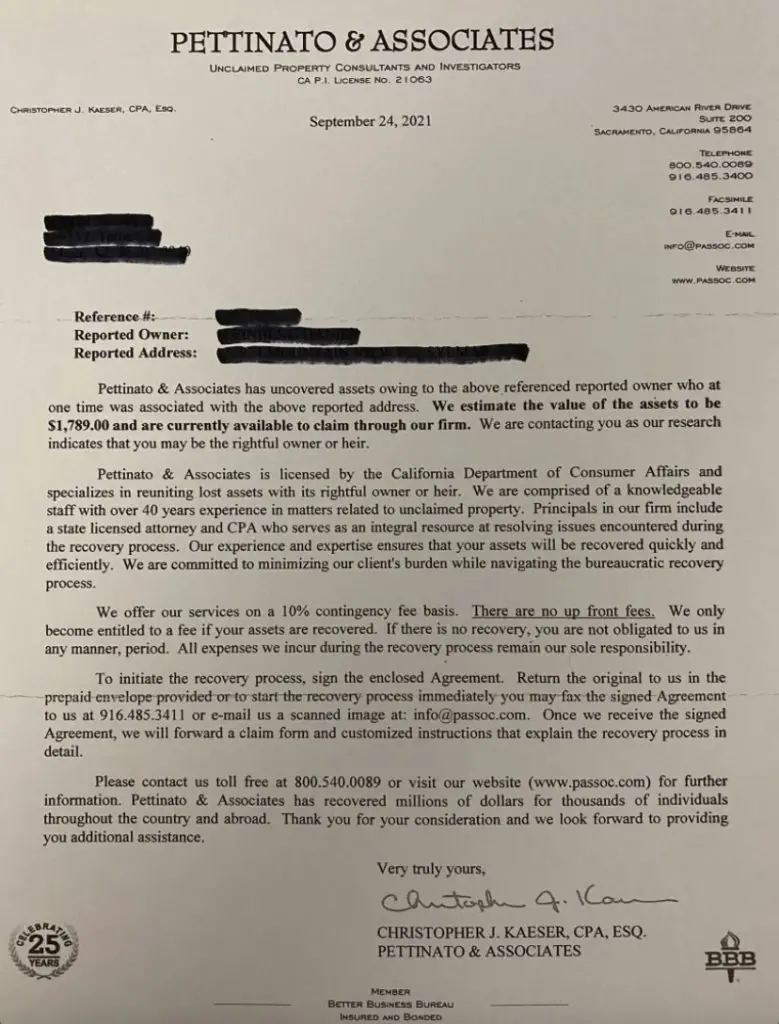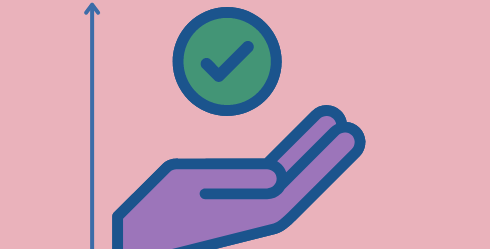Did you receive a letter from Pettinato & Associates saying you have unclaimed property and need to claim it? It’s not a scam letter, but you can reclaim the property yourself. Pettinato & Associates is a third-party agency that helps people recover unclaimed property listed publicly, but they charge a fee for their services.

Is Pettinato & Associates Legit
Yes, Pettinato & Associates is a company licensed by the California Department of Consumer Affairs. They help people recover lost assets and return them to their rightful owners. They offer their services for free when it comes to processing your lost assets with the state, but they do take a 10% fee from the amount you get back. This fee is only charged if they successfully recover your assets.
What to Do if You Receive a Letter From Pettinato and Associates
- Verify the Claim: Check your state’s official unclaimed property website to see if the claim is legitimate.
- Be Cautious: Don’t rush into anything. Make sure the letter is from a trusted source.
- Ask for Help: If you’re unsure or have concerns, seek advice from someone you trust or an official state resource.
- Avoid Upfront Fees: Remember, you can claim unclaimed property directly through the state without paying a third-party fee.
What To Do If You Get Scammed
Cancel your credit card
Immediately call your financial provider and cancel your credit card. By so doing, the credit card details you used for your transaction would become null and void.
Request for a new card
After the old credit card has been canceled, ask for a new card, it doesn’t cost much to get one. Your credit card issuer will issue you a new one with different numbers.
Report the Fraud To Relevant Authorities
Report the scam to relevant authorities and organizations. This includes:
- Better Business Bureau (BBB): File a complaint with the BBB if the online store is based in the United States.
- Internet Crime Complaint Center (IC3): If you are in the United States, you can file a complaint with the IC3 at https://www.ic3.gov/.
- Your Local Consumer Protection Agency: Contact your local consumer protection agency or the equivalent regulatory body in your country.
Also read: Gluco Balance ‘Grape Trick’ Scam
